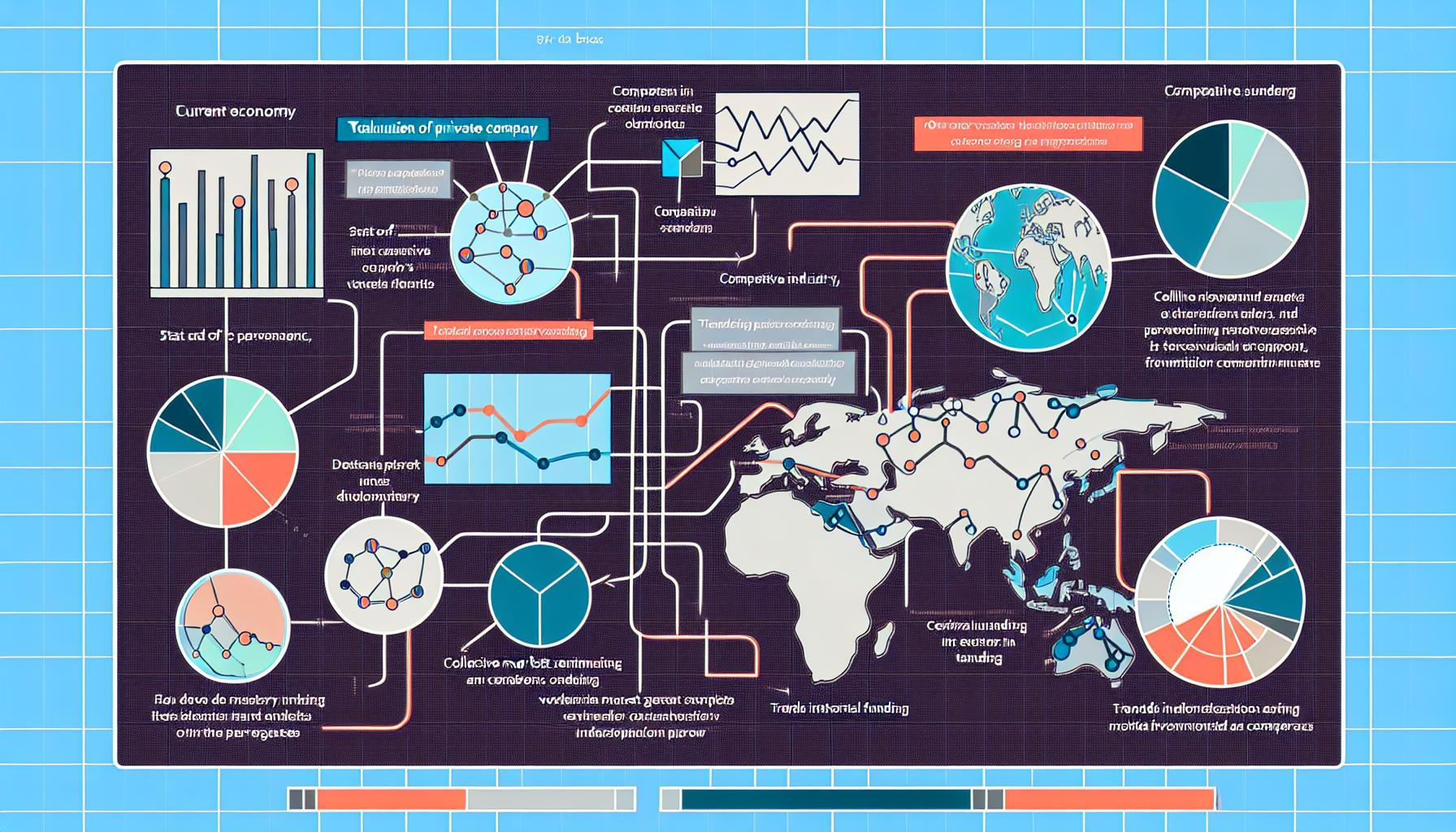Valuation of private companies is a multifaceted process, deeply influenced by external market conditions and industry trends. Here's how recent events across various factors have impacted private company valuations.
Economic Conditions' Influence: The COVID-19 Pandemic
The COVID-19 pandemic highlighted the varying impacts of economic downturns on private company valuations, demonstrating a sharp decline in sectors like retail and travel due to decreased consumer demand, while e-commerce and digital services saw valuation increases due to a surge in online activity. This period underscored the importance of adaptability, with companies that innovated or pivoted their business models often faring better. Thus, the pandemic served as a vivid illustration of how external economic factors can differentially affect industry sectors, reflecting a complex interplay between consumer behavior, market dynamics, and company resilience.
Industry Trends' Impact: The Rise of Renewable Energy
The renewable energy sector has been experiencing significant growth, primarily due to the increasing global awareness of climate change and supportive government policies that have been implemented. These initiatives, including tax incentives and regulatory support, have spurred ongoing investment and innovation in cleaner energy sources. Consequently, companies in this field have seen their valuations rise, reflecting the sustained investor confidence and the sector's growing economic impact over time. This growth underscores the crucial role that industry trends can play in impacting valuation for specific companies.
Market Sentiment: The Tech Industry's Fluctuations
Investor sentiment, especially within the tech industry, has led to fluctuations in company valuations. Various factors, including regulatory scrutiny and competitive pressures, significantly impact these valuations. This dynamic illustrates that perceptions and external conditions can profoundly affect a company's worth, extending beyond basic financial fundamentals. Such shifts underscore the intricate relationship between investor attitudes and the perceived value of tech companies in the ever-evolving market landscape.
Competitive Landscape: The Streaming Wars
The "streaming wars" within the entertainment industry exemplify how competitive dynamics can influence valuations across various sectors. Companies that maintain a competitive edge, be it through innovation or strategic positioning, can safeguard or elevate their valuations, even amid heightened market competition. This principle holds true across diverse industries, emphasizing the universal importance of staying ahead in a competitive landscape to secure or enhance company valuations.
External Funding and Investment Trends: The Decline in Venture Funding
In the last two years, venture funding has significantly decreased, impacting industries such as technology and healthcare. This decline in investment has led to lower valuations for startups and private companies, posing challenges in scaling their operations and fostering innovation. The reduced capital flow is testing these companies' resilience and their ability to adapt and grow in a financially constrained environment.
Global Events: Trade Tensions and Supply Chain Disruptions
Global events like trade tensions and supply chain disruptions have significantly impacted valuations for companies, particularly in manufacturing and retail with global supply chains. These firms see valuation shifts based on their unique adaptability and responses to these disruptions. For potential buyers, this underscores the crucial need to evaluate supplier and customer concentration, highlighting diversification and strategic flexibility as key to mitigating risks and ensuring investment stability.
Conclusion
These examples underline the complexity of private company valuation, showing the influence of a range of external factors. Stakeholders need to stay informed and adaptable, recognizing that valuation is a dynamic reflection of both internal operations and external influences. Understanding this interplay is crucial for navigating the valuation landscape, especially in times of economic and industry-wide shifts.



